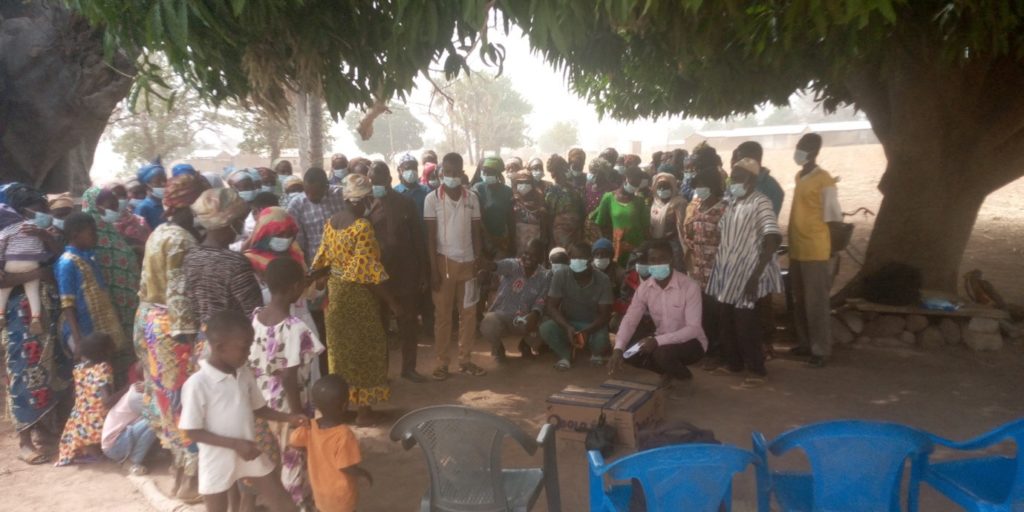Savannah Agricultural Research Institute’ (SARI) and 1890 Universities Center of Excellence for Global Food Security and Defense’s (CEGFSD) scientists conducted a series of workshop training at three (3) communities (Baadabog, Bazua, and Yaligu) in the Binduri District of the Upper East Region of Ghana. Overall, 409 farmers (134 males and 265 females) benefited from these workshops. The general topics discussed focused on good animal husbandry practices, crop residue management, and small ruminant production.

Training outcomes for these workshops were twofold: 1) increased awareness and skills on crop residue harvesting, storage and utilization; and 2) improved knowledge on livestock feeding, nutrition and other good husbandry practices that affect animal birth and death, weight, and health.
In general, the use soil amendment such as compost can alleviate soil acidity, improve soil water-holding capacity, and prevent the leaching of plant nutrients, which all contribute to increased crop yields and raised farm productivity.
In fact, during the monitoring visits to the intervention sites, the research team observed that the vegetative growth of maize on Ms. Assibi Nbawini’s farm was unique, which caught researchers’ attention. In her testimony, Farmer Madam Assibi, an innovative farmer at Yarigu who participated in the training on crop residue management and compost preparation said she conveyed all her household and animal waste products (food, wastewater, ash, manure, etc.) into a compost pit after the training. This was applied to the backyard farm in May 2022 and ploughing was done in June 2022. She noted that only half the amount of mineral fertilizer was applied this year compared to the previous years but expecting much greater harvest this year compared to the harvest in the last few years. She concluded that little information gathered from the meetings and the on-going radio broadcast are very useful if one is patient enough to practice them at home.
An “Animal Production Training Workshop” facilitated by the District Development Officer for Livestock Officer (Mr. Adondo Issifu Rahman) of the Department of Agriculture, Binduri District in the Upper East Region of Ghana was also conducted by SARI and CEGFSD scientists. The training participants were livestock producers from the three communities (Baadabog, Bazua and Yaligu) in the Binduri District of the Upper East Region of Ghana.
It is worth noting that at the end of the training, the Chief of the community appreciated the Project Manager for organizing the training for in the community. He noted that most women are engaged in some level of pig production, but high mortality rates remain the critical constraint in animal production. “We have fresh ideas now on best practices on animal nutrition, treatment for common diseases and management, and good housing practices, which are critical to enhancing livestock production. I encourage you the beneficiaries to put to practice the knowledge acquired from this training,” he said.

